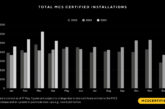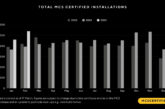
Here, the EUA outlines its findings on the link between Britain’s mental health crisis and fuel poverty.
This winter has been characterised by bitterly cold days, and frequent snowy spells and whilst we are now in March, it is still incredibly chilly outside.
For most, respite can be found in warm, cosy homes that allow us to thaw out and relax. However, for the some 4 million UK households in Fuel Poverty, the reality couldn’t be more different. The scale of fuel poverty in the UK is extensive, and with this comes myriad deeply concerning psychological and physiological impacts. The effects of living in a miserably cold home are debilitating, with disastrous consequences for people’s emotional wellbeing.
Evidence outlined in the Energy and Utilities Alliance’s (EUA) recent report details fuel poverty worsens, and in some cases causes a range of mental health issues, such as anxiety and depression – 20% of English adult’s state that a housing issue in the last five years had negative impacts on their mental health.
Those facing financial pressures to pay bills are four times as likely to suffer from anxiety and depression, and households with bedroom temperatures of less than 15 degrees reported far higher levels of psychological distress than those with warmer properties.
The report explores how the mental health impacts of fuel poverty are debilitating for young and old. At a time when mental health in the UK is already at crisis point, and funding for mental health (in particular adolescent mental health which comprises a mere 0.7% of NHS budgets), is being stretched thin and parity with physical health is some way off, the EUA urges action on the endemic fuel poverty which is worsening Britain’s mental health crisis.
Mike Foster, former Government minister and Chief Executive of the Energy and Utilities Alliance, said: “It is clear that, despite policies being introduced and mechanisms put in place, fuel poverty remains a devastating reality for many in the UK. We have heard shocking anecdotes of people self-disconnecting, facing the ‘heat or eat dilemma’ or experiencing mental health problems or severe isolation as a result of their fuel poor status from organisations working on the ground.“
He added: “Fuel poverty is a complex issue, and our report suggests a range of proposals that can combat it. There needs to be an urgency amongst policy makers, in order to tackle endemic fuel poverty; this really is a life or death scenario.”
Ellie White, Senior Policy and Campaigns Officer at mental health charity Mind, said: “The link between fuel poverty and poor mental health works both ways. It stands to reason that living in damp, mouldy and cold conditions will make your mental health worse, while those of us with existing mental health problems are more likely to experience poverty and live in poor quality, badly insulated homes that make the need for heating even more pressing. It’s a vicious cycle that needs to be broken.“
“Reducing cold has been shown to be one of the cheapest and most reliable housing improvements for increasing someone’s wellbeing and we welcome the recommendations in EUA’s report on Fuel Poverty. We will continue to campaign so that everyone with a mental health problem has a safe, stable and secure place to live.”
The EUA’s new report, “Fuel Poverty: Ending the vicious cycle of vulnerability” can be found here.













